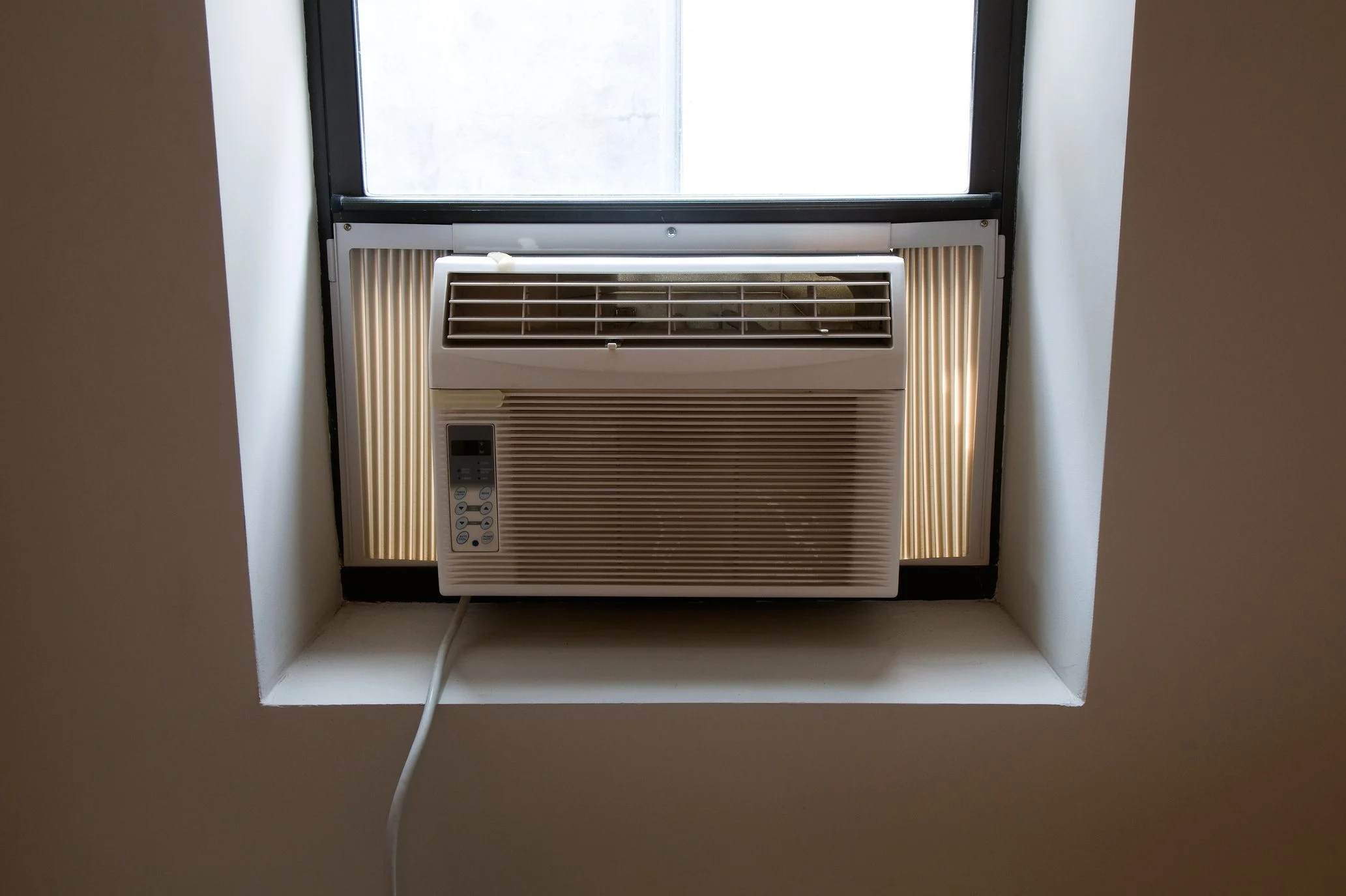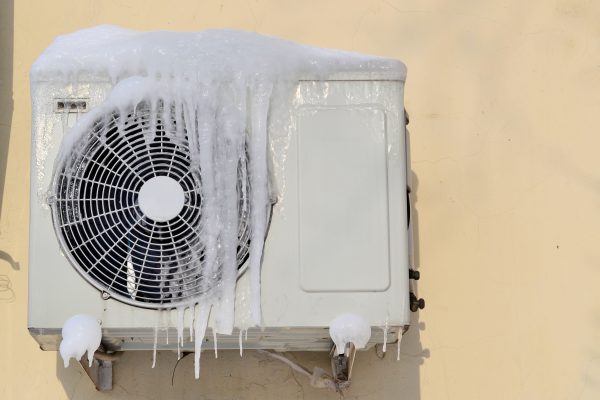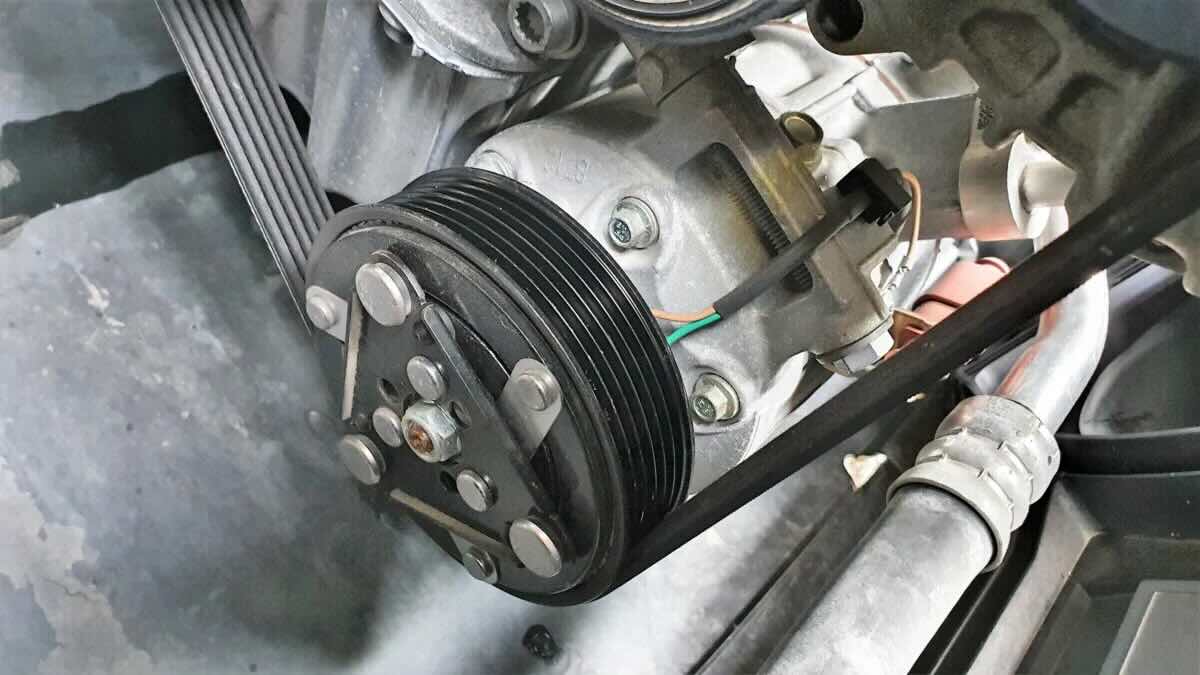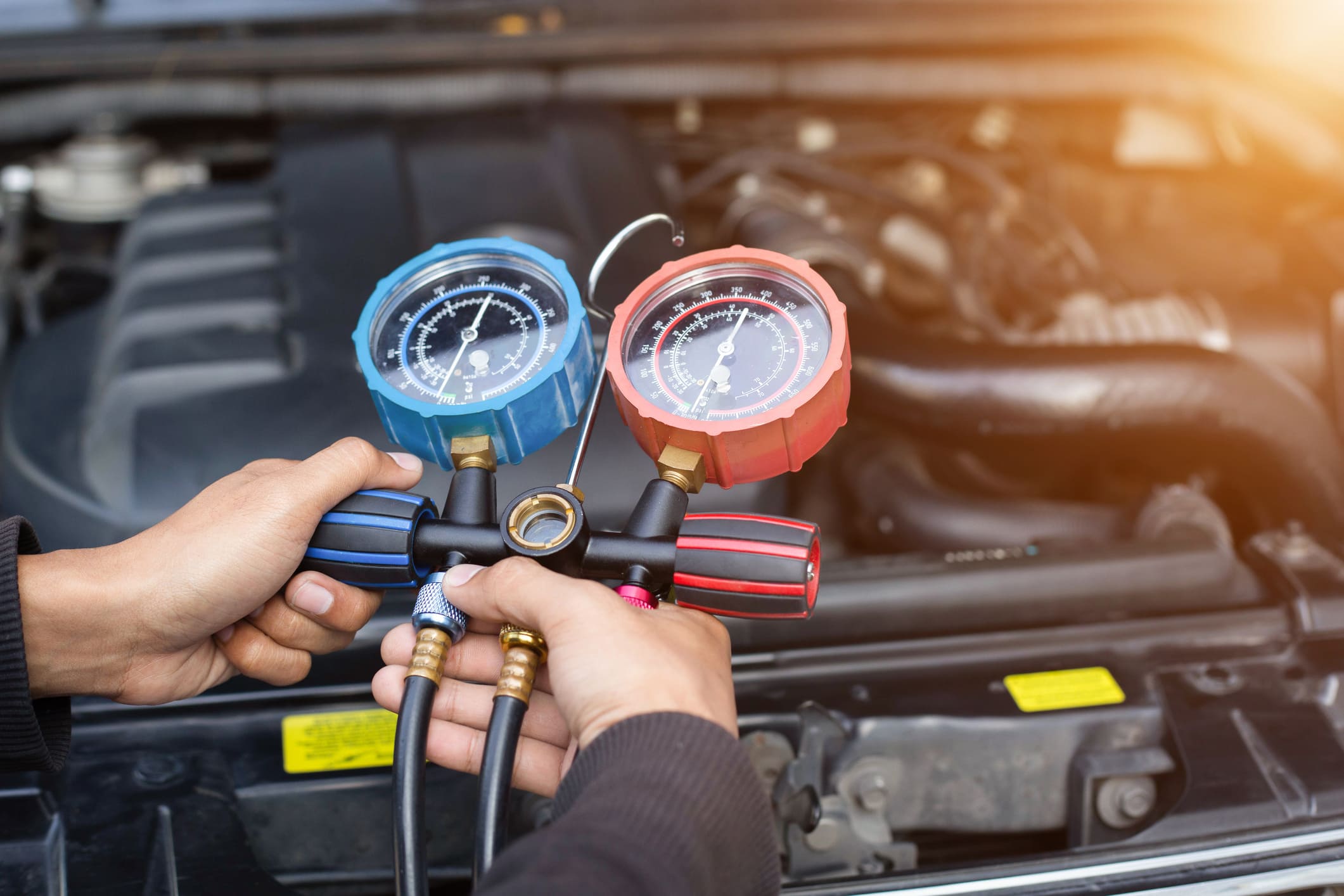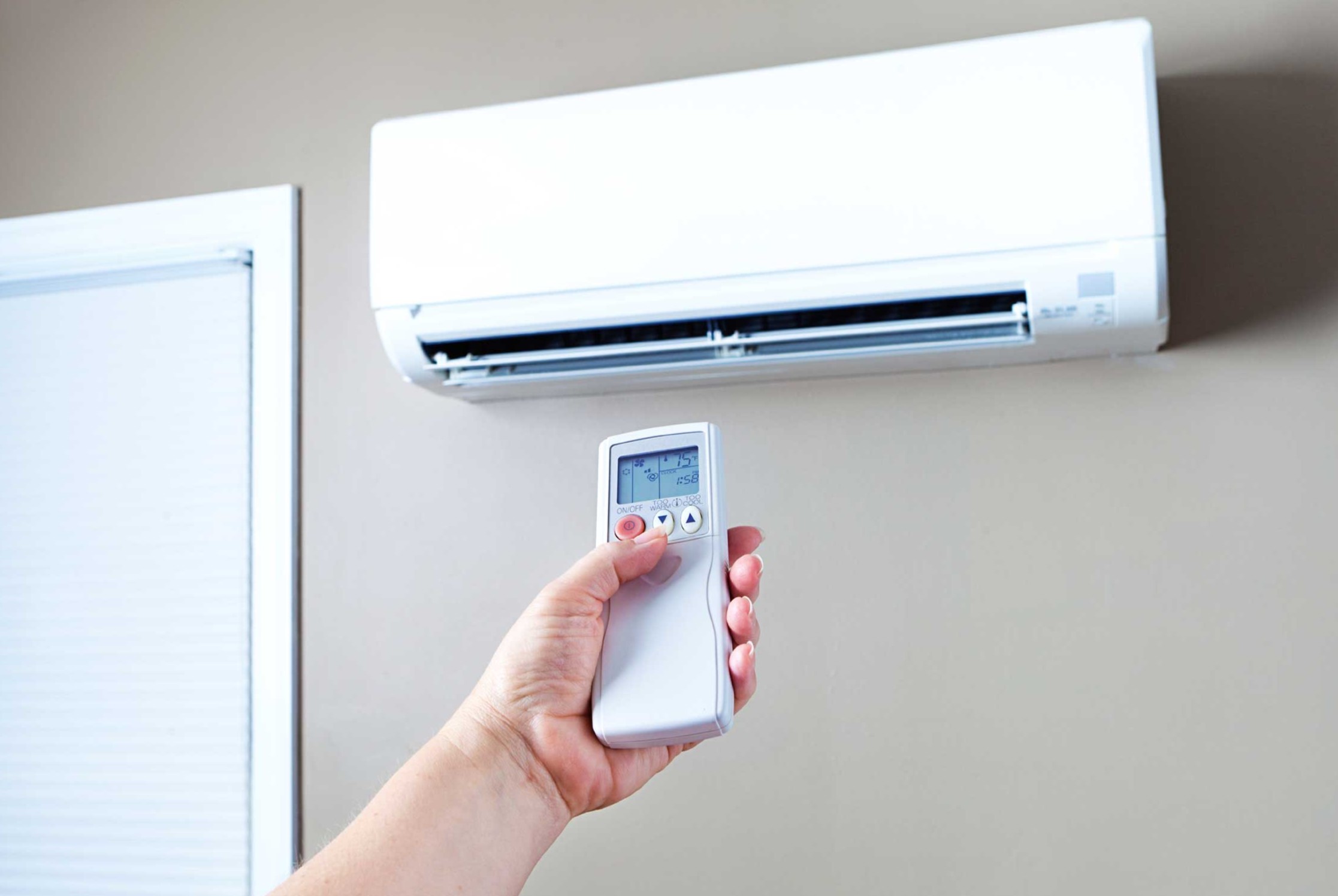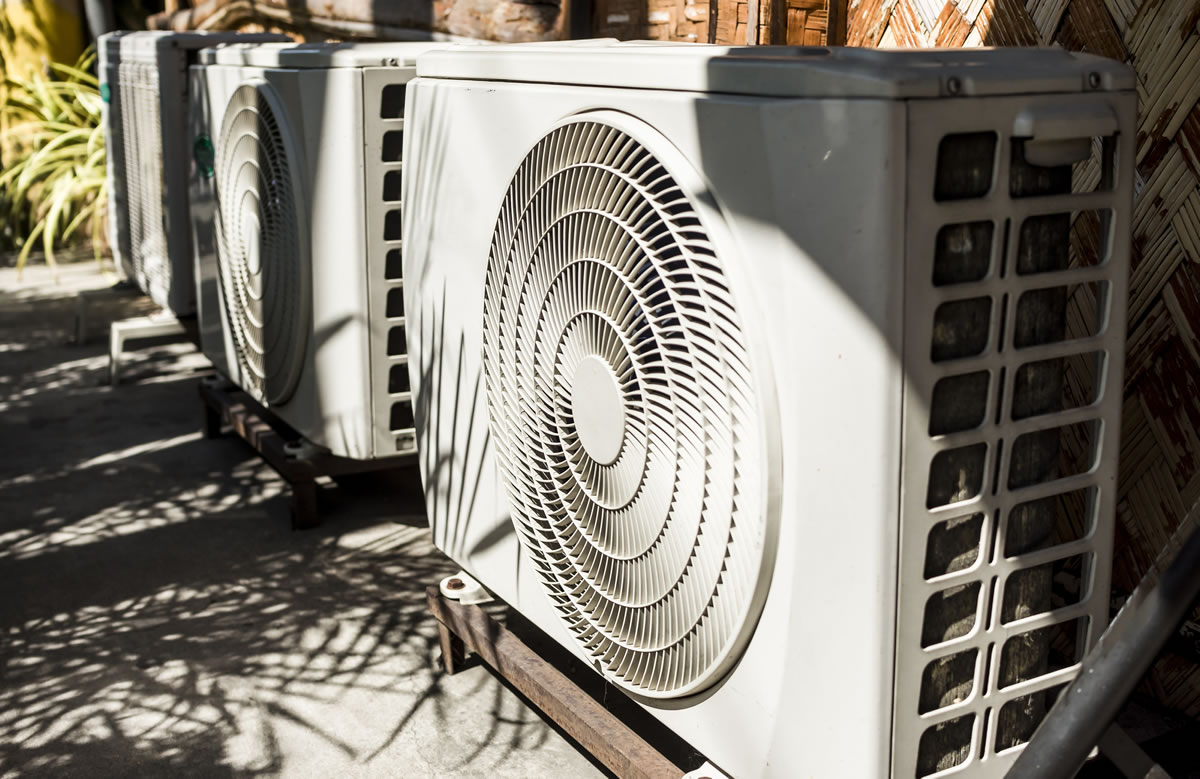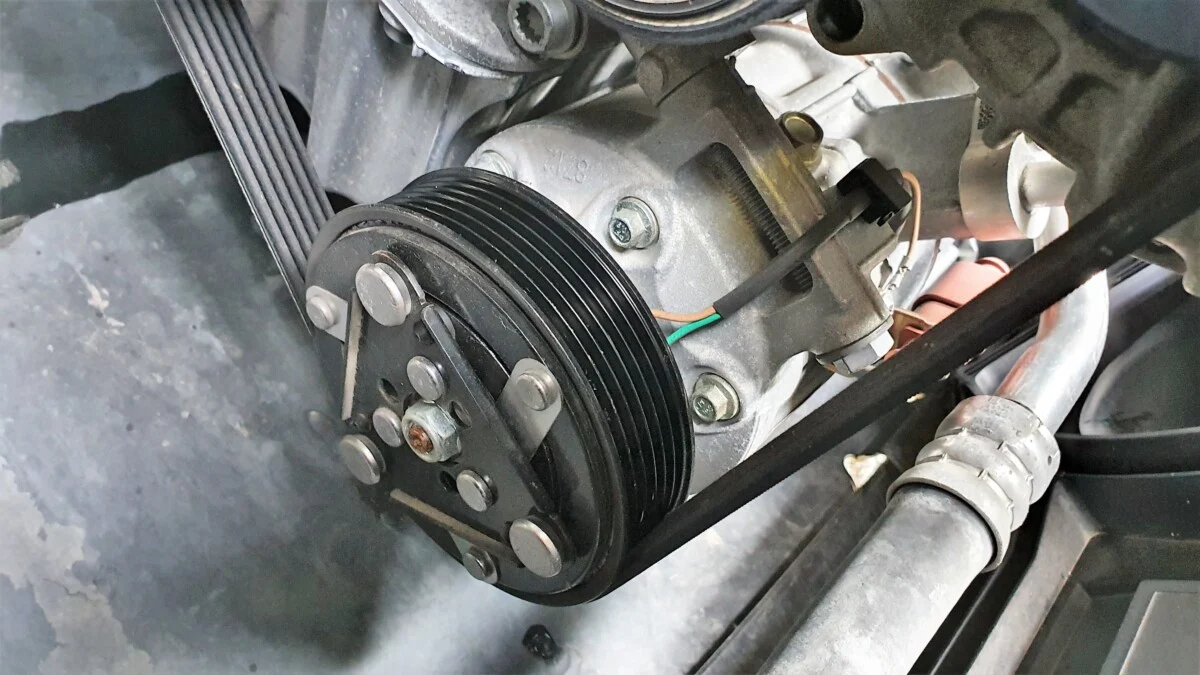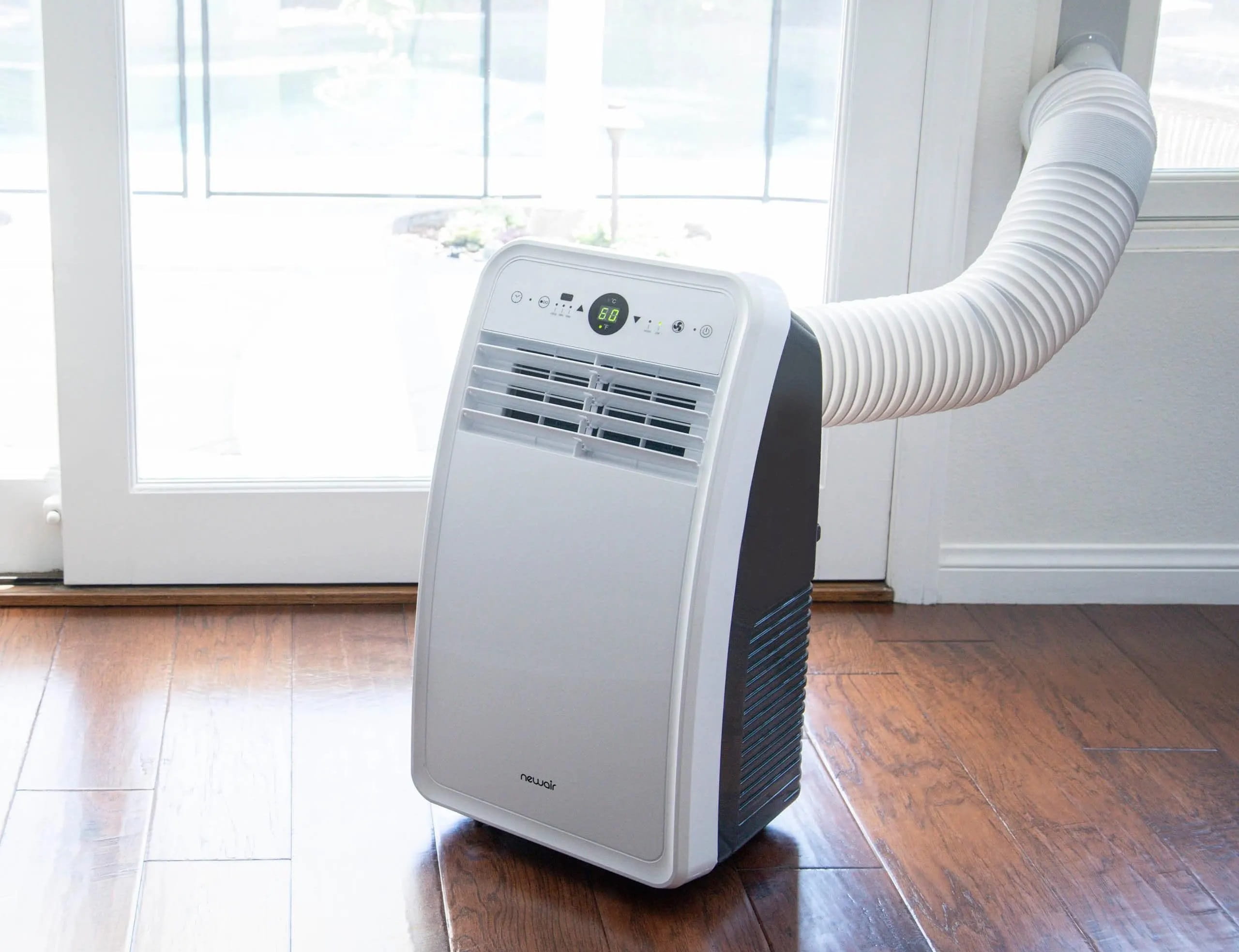Home>Home Maintenance>What Causes An Air Conditioner Compressor To Stop Working
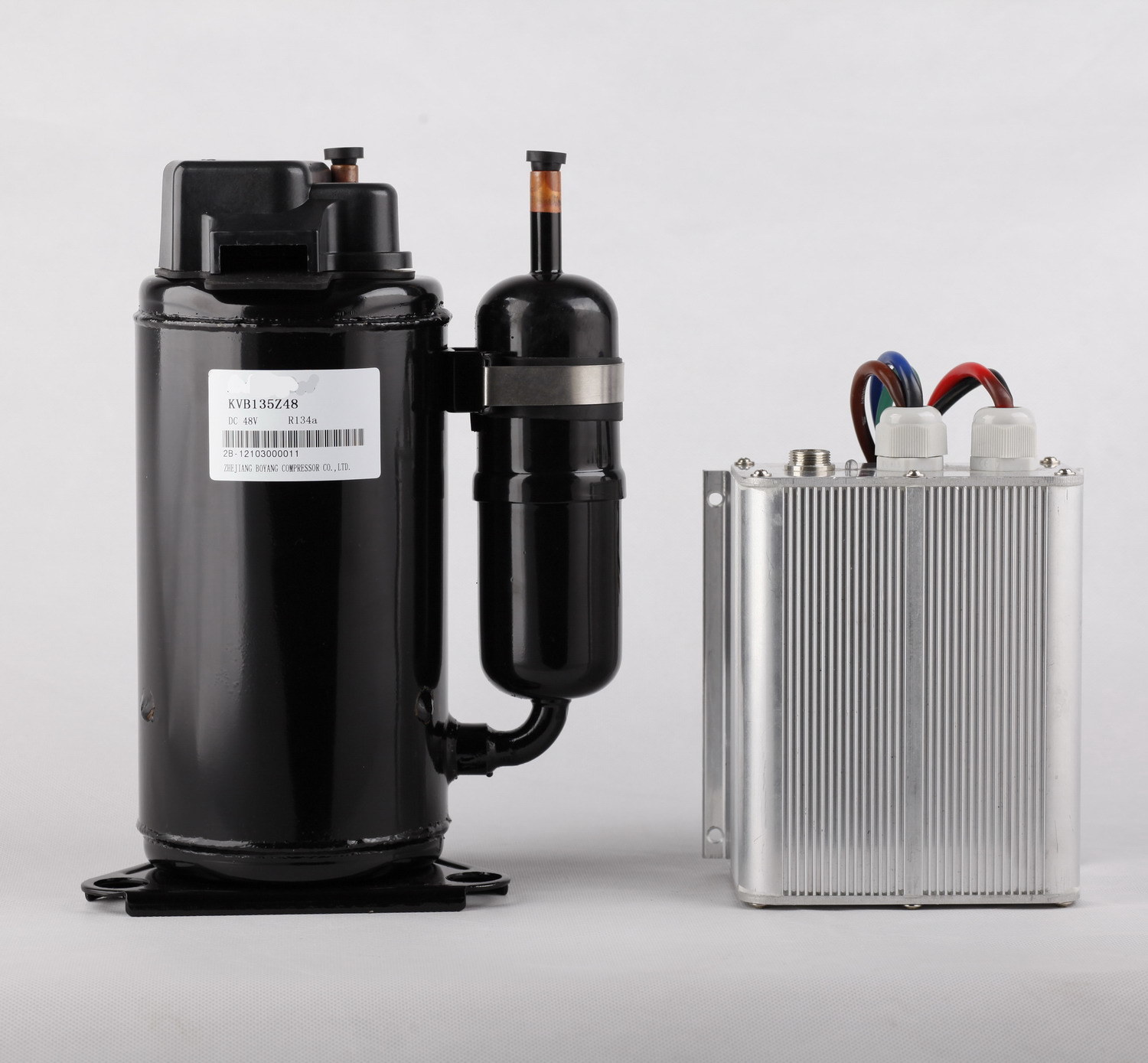

Home Maintenance
What Causes An Air Conditioner Compressor To Stop Working
Modified: March 6, 2024
Learn the common reasons why an air conditioner compressor stops working and how proper home maintenance can prevent this issue.
(Many of the links in this article redirect to a specific reviewed product. Your purchase of these products through affiliate links helps to generate commission for Storables.com, at no extra cost. Learn more)
Introduction
Maintaining a comfortable and cool home environment during the scorching summer months is crucial, and your air conditioner plays a vital role in achieving that. One of the most important components of an air conditioner is the compressor. It is responsible for circulating the refrigerant and ensuring that cool air is distributed throughout your home. However, there are instances when the air conditioner compressor may stop working, leaving you with a hot and uncomfortable living space.
Understanding the common causes of air conditioner compressor failure can help you troubleshoot the issue and potentially save you from costly repairs or replacements. In this article, we will explore the various factors that can cause an air conditioner compressor to stop working and provide some practical troubleshooting tips to help you rectify the problem.
Key Takeaways:
- Keep your air conditioner compressor running smoothly by addressing common issues like low refrigerant, electrical problems, and dirty coils. Regular maintenance can prevent costly repairs.
- If you notice signs of a faulty compressor, such as weak airflow or strange noises, seek professional help. DIY troubleshooting is helpful, but safety and accurate diagnosis are best left to HVAC experts.
Read more: What Causes An AC Compressor To Stop Working
Common Causes of Air Conditioner Compressor Failure
Insufficient refrigerant levels
One of the most common causes of compressor failure is low refrigerant levels. Refrigerant is essential for the cooling process, and if there is a leak or insufficient levels, it can put a strain on the compressor. Over time, this can lead to the compressor overheating and eventually ceasing to function.
Electrical issues
Electrical problems can also play a significant role in compressor failure. Faulty wiring, worn-out capacitors, or blown fuses can interrupt the electrical flow to the compressor motor, causing it to stop working. It is important to check the electrical connections regularly and address any issues promptly to avoid compressor failure.
Dirty or blocked condenser coils
The condenser coils of your air conditioner are responsible for releasing heat from the refrigerant, allowing it to cool down and continue the cooling cycle. However, if the coils become dirty or blocked by debris, they can hinder the proper heat transfer process. This can cause the compressor to overheat and fail to work efficiently.
Read more: How To Replace An Air Conditioner Compressor
Motor failure
The compressor motor plays a crucial role in the operation of the compressor. If the motor becomes worn out or experiences mechanical issues, it can lead to compressor failure. This can be caused by factors such as lack of lubrication, excessive heat, or general wear and tear over time.
Overheating
Air conditioners are designed to handle a certain level of heat, but if they are continuously exposed to extreme temperatures or placed in areas with poor ventilation, the compressor can overheat. This can lead to the compressor shutting off or failing altogether.
By understanding these common causes of air conditioner compressor failure, you can take proactive measures to prevent issues and keep your cooling system running smoothly. In the next section, we will discuss the signs and symptoms that indicate a faulty air conditioner compressor and how to troubleshoot these issues.
[Content will continue in next message]
Key Takeaways:
- Keep your air conditioner compressor running smoothly by addressing common issues like low refrigerant, electrical problems, and dirty coils. Regular maintenance can prevent costly repairs.
- If you notice signs of a faulty compressor, such as weak airflow or strange noises, seek professional help. DIY troubleshooting is helpful, but safety and accurate diagnosis are best left to HVAC experts.
Read more: What Causes An AC Compressor To Stop Working
Common Causes of Air Conditioner Compressor Failure
When your air conditioner compressor stops working, it can be frustrating and inconvenient, especially during the hot summer months. Understanding the common causes of air conditioner compressor failure can help you pinpoint the issue and take the necessary steps to rectify it. Let’s explore some of the most common causes:
1. Insufficient refrigerant levels
Refrigerant is the lifeblood of your air conditioning system. It absorbs heat from the indoor air and releases it outdoors, creating a cooling effect. If the refrigerant levels in your system are low, it can put strain on the compressor. This strain can overheat the compressor and eventually cause it to fail. Refrigerant leaks are often the culprit behind low refrigerant levels, so it’s important to have your system inspected regularly to identify and fix any leaks.
Read more: What Does An Air Conditioner Compressor Do
2. Electrical issues
Electrical problems can also lead to compressor failure. Faulty wiring, worn-out capacitors, or blown fuses can interrupt the electrical flow to the compressor motor, causing it to stop working. It’s crucial to regularly inspect the electrical connections and components of your air conditioner to ensure they are in good working condition. If you suspect an electrical issue, it’s best to consult a professional to safely diagnose and repair the problem.
3. Dirty or blocked condenser coils
The condenser coils in your air conditioner are responsible for releasing heat from the refrigerant, allowing it to cool down and continue the cooling cycle. However, over time, these coils can accumulate dirt, debris, and even mold. This build-up restricts the airflow and hinders the heat transfer process, causing the compressor to work harder and potentially overheat. Regularly cleaning and maintaining the condenser coils can help prevent compressor failure due to dirty or blocked coils.
4. Motor failure
The compressor motor is the heart of your air conditioner’s compressor. It compresses the refrigerant and circulates it through the system. However, motors can experience issues over time, such as lack of lubrication, excessive heat, or general wear and tear. These issues can lead to motor failure, causing the compressor to stop working. Regular maintenance, including lubricating the motor and checking for any signs of damage, can help prevent motor failure and subsequent compressor failure.
5. Overheating
Air conditioners are designed to handle a certain level of heat. However, if your unit is continuously exposed to extremely high temperatures or placed in an area with poor ventilation, the compressor can overheat. Overheating can cause the compressor to shut off as a safety mechanism or lead to irreversible damage. To prevent overheating, ensure that your air conditioner has adequate airflow and is not exposed to excessive heat sources.
By understanding these common causes of air conditioner compressor failure, you can take the necessary precautions to prevent issues and ensure that your cooling system operates efficiently. Regular maintenance, including professional inspections and cleaning, can go a long way in extending the lifespan of your compressor and avoiding costly repairs or replacements.
[Content will continue in the next message]
Read more: Why Would My Air Conditioner Stop Working
Signs and Symptoms of a Faulty Air Conditioner Compressor
When your air conditioner compressor is experiencing issues, there are several telltale signs that can indicate a problem. Recognizing these signs and symptoms can help you address the issue promptly and avoid further damage. Here are some common signs of a faulty air conditioner compressor:
1. Frequent on and off cycling
If you notice that your air conditioner is frequently turning on and off in short intervals, known as short cycling, it could be a sign of a compressor problem. This could indicate that the compressor is struggling to maintain the desired temperature, potentially due to issues with refrigerant levels, electrical problems, or other compressor-related issues. Short cycling not only affects the overall efficiency of your system but also puts unnecessary strain on the compressor, leading to further damage over time.
2. Weak or warm airflow
Another sign of a faulty compressor is weak or warm airflow coming from your air conditioning vents. The compressor is responsible for circulating the refrigerant and cooling the air. When the compressor is not working properly, it may not be able to generate enough pressure to push the cooled air throughout your home effectively. As a result, you may experience reduced airflow or notice that the air coming out of the vents is not as cool as it should be.
3. Strange noises
Unusual or loud noises coming from your air conditioning unit can indicate compressor issues. Grinding, banging, hissing, or screeching sounds may be signs of loose or damaged compressor components, such as bearings or pistons. If you hear these noises, it’s important to have your system inspected by a professional promptly. Ignoring strange noises can lead to further damage and potential compressor failure.
4. Tripped circuit breaker
A tripped circuit breaker is another indicator of a compressor problem. If your air conditioner suddenly stops working, and you find that the circuit breaker for your AC unit has tripped, it could be due to an overloaded or malfunctioning compressor. Circuit breakers trip as a safety mechanism to prevent electrical hazards. Resetting the breaker may temporarily resolve the issue, but it’s crucial to have a professional examine your system to determine the underlying cause.
5. Inconsistent cooling
If you notice that certain areas of your home are not being adequately cooled, or if you experience fluctuations in temperature throughout your living space, it could be a sign of a faulty compressor. When the compressor is not functioning properly, it may not be able to maintain a consistent cooling cycle, resulting in uneven cooling. If you’re consistently struggling to achieve the desired temperature in your home, it’s best to have a professional diagnose and address the issue promptly.
Recognizing these signs and symptoms of a faulty air conditioner compressor can help you identify problems early on and prevent further damage. However, it’s important to note that diagnosing and repairing compressor issues should be left to trained professionals with experience in HVAC systems. Attempting to repair the compressor yourself can lead to further damage, safety hazards, and void any existing warranties. If you notice any of these signs, contact a reputable HVAC technician to inspect and service your air conditioning system.
[Content will continue in the next message]
How to Troubleshoot Compressor Issues
If you suspect that your air conditioner compressor is experiencing problems, troubleshooting the issue can help you identify potential causes and, in some cases, resolve the problem without the need for professional intervention. Here are some steps you can take to troubleshoot compressor issues:
1. Checking for refrigerant leaks
Low refrigerant levels can put a strain on the compressor and lead to its failure. You can check for refrigerant leaks by inspecting the refrigerant lines for any signs of oil stains or refrigerant residue. If you suspect a leak, it is best to contact a professional HVAC technician to locate and fix the leak and recharge the refrigerant as needed.
Read more: How To Check An Air Conditioner Compressor
2. Testing electrical connections
Inspect the electrical connections of your air conditioning system. Ensure that all wires are tightly secured and that there are no frayed or damaged wires. You can use a multimeter to test the electrical connections and ensure that there is proper voltage flowing to the compressor. If you detect any issues or suspect faulty connections, it is advisable to seek the assistance of a qualified electrician or HVAC technician.
3. Cleaning condenser coils
Dirty or blocked condenser coils can cause the compressor to overheat and fail. Regularly cleaning the condenser coils can improve the heat transfer process and increase the efficiency of your air conditioner. Use a soft brush or a vacuum cleaner with a brush attachment to remove dirt, debris, and any obstructions from the coils. It is important to turn off the power to your air conditioner before performing any maintenance tasks.
4. Inspecting motor components
Inspect the motor components of your air conditioner, including the motor itself, bearings, and other moving parts. Look for any signs of wear, damage, or lack of lubrication. Ensure that the motor spins freely without any obstructions. If you notice any issues, such as excessive friction or signs of damage, it is recommended to contact a professional HVAC technician to inspect and service the motor.
5. Preventative maintenance tips
Prevention is always better than cure when it comes to your air conditioning system. Regularly scheduled maintenance can help prevent compressor issues and extend the lifespan of your unit. Here are a few maintenance tips:
– Change or clean the air filters regularly to ensure proper airflow and reduce strain on the compressor.
– Keep the area around the outdoor unit clear of debris, vegetation, and obstructions to promote adequate airflow.
– Schedule regular professional maintenance inspections to identify and address any potential problems early on.
– Follow manufacturer guidelines for maintenance and service recommendations.
While troubleshooting compressor issues can sometimes help identify the cause of the problem, it is important to remember that certain repairs and maintenance tasks should be performed by qualified HVAC technicians. If you are unsure or uncomfortable with any troubleshooting steps, it is best to seek professional assistance to ensure proper diagnosis and repair of compressor issues.
[Content will continue in the next message]
Read more: How To Fix Air Conditioner Compressor
When to Call a Professional
While troubleshooting compressor issues can be helpful for minor problems, there are instances when it is crucial to call a professional HVAC technician. Here are some reasons why it is important to seek professional assistance:
The importance of professional diagnosis
A professional HVAC technician has the knowledge, experience, and tools to accurately diagnose compressor issues and identify underlying problems. They can perform comprehensive inspections, use specialized equipment, and understand the intricate workings of your air conditioning system. Professional diagnosis ensures that the root cause of the problem is correctly identified, allowing for appropriate repairs or replacements to be made.
Safety concerns
Air conditioning systems involve complex electrical components and potentially hazardous refrigerants. Working on compressors without the necessary expertise and safety precautions can put you at risk of electrical shocks, refrigerant leaks, or other safety hazards. HVAC technicians are trained to handle these systems safely and can ensure that repairs or maintenance tasks are performed correctly, minimizing the risk of accidents or injury.
Potential cost savings
Calling a professional at the first sign of compressor issues can potentially save you money in the long run. While it may be tempting to attempt DIY repairs to save on costs, inexperienced repairs can lead to further damage, requiring more extensive repairs or even a full compressor replacement. Professional technicians can fix the problem correctly the first time, reducing the risk of recurring issues and saving you from costly repairs down the line.
Additionally, many warranties and insurance policies require professional servicing and repairs. Attempting DIY repairs or hiring unqualified individuals can void your warranties or insurance coverage, leaving you responsible for all associated costs.
It’s important to note that routine maintenance and inspections by professionals are often recommended even if your compressor is functioning well. Professional technicians can identify potential issues early on, perform necessary maintenance tasks, and ensure that your system operates efficiently, preventing costly breakdowns and extending the lifespan of your compressor.
In summary, it is crucial to call a professional HVAC technician when you encounter compressor issues to ensure accurate diagnosis, address safety concerns, and potentially save on costs. Regular professional maintenance is also essential to prevent and detect problems early on. By trusting professionals with the care of your air conditioning system, you can have peace of mind knowing that your compressor is in good hands, and your home will remain cool and comfortable.
[Content will continue in the next message]
Read more: What Is An Air Conditioner Compressor
Conclusion
The air conditioner compressor is a vital component of your cooling system, and any issues with it can significantly impact your comfort and indoor air quality. Understanding the common causes of compressor failure, recognizing the signs of a faulty compressor, and knowing how to troubleshoot the problem are crucial steps in maintaining a well-functioning air conditioning system.
Low refrigerant levels, electrical issues, dirty condenser coils, motor failure, and overheating are all potential causes of compressor failure. By addressing these issues promptly, you can prevent further damage, extend the lifespan of your compressor, and avoid expensive repairs or replacements.
Signs such as frequent on and off cycling, weak airflow, strange noises, tripped circuit breakers, and inconsistent cooling may indicate compressor issues. It is important to address these signs promptly and conduct troubleshooting steps such as checking for refrigerant leaks, testing electrical connections, cleaning condenser coils, inspecting motor components, and implementing preventative maintenance.
While troubleshooting can be helpful for minor issues, it is essential to call a professional HVAC technician for accurate diagnosis, safety concerns, and potential cost savings. Professionals have the expertise, tools, and safety protocols to handle compressor repairs and maintenance correctly, minimizing the risk of accidents and ensuring the longevity of your system.
Regular professional maintenance and inspections are recommended to prevent compressor issues and to catch any potential problems early on. This can help optimize your system’s efficiency, reduce energy consumption, and avoid costly breakdowns.
In conclusion, maintaining a well-functioning air conditioner compressor is vital for a comfortable and cool home environment. By understanding the common causes of compressor failure, recognizing the signs of a faulty compressor, and seeking professional assistance when needed, you can ensure that your air conditioning system operates efficiently, providing you with the cooling comfort you deserve.
Remember, a properly maintained compressor not only keeps you comfortable but also contributes to energy efficiency, cost savings, and the longevity of your air conditioning system. So, take proactive steps to care for your compressor and enjoy a cool and inviting home all year round.
[End]
Frequently Asked Questions about What Causes An Air Conditioner Compressor To Stop Working
Was this page helpful?
At Storables.com, we guarantee accurate and reliable information. Our content, validated by Expert Board Contributors, is crafted following stringent Editorial Policies. We're committed to providing you with well-researched, expert-backed insights for all your informational needs.
